Master copies -- Always useful!
-
@JODY I'm reminded of Franklin Booth, who wanted to learn pen and ink. He did many copies of other artist's works. Only --- he accidentally copied wood engravings! (thought they were pen and ink pieces) Very different process. But in doing so he became one of the BEST pen and ink artists ever!
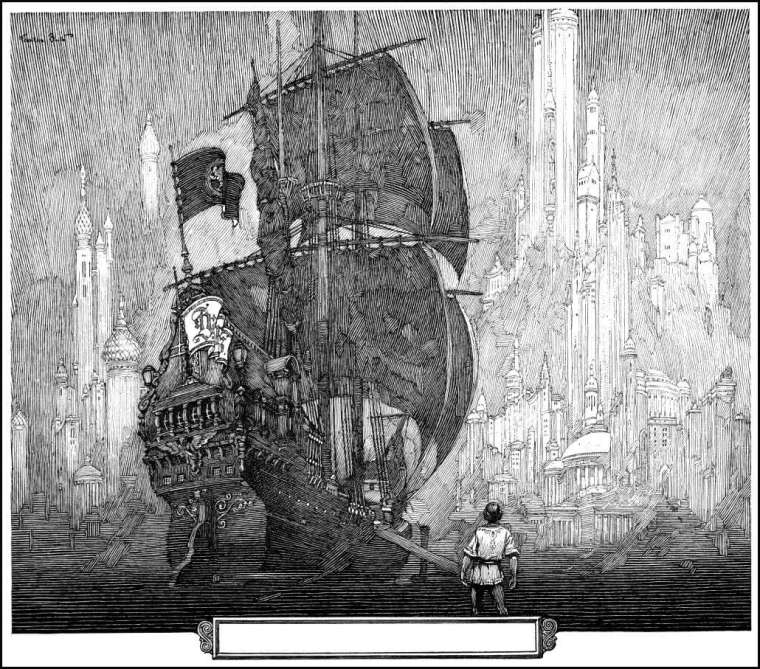
-
@jody Copycat sketchbook--GREAT idea!! I may have to do that as well.
-
@eli You should! I got the idea from one of Jake Parker’s videos. To keep a sketchbook that is just for copies. You don’t have to show anyone. They don’t have to be perfect. You can do one study over and over again. I’m trying to get into the habit of making master copies a regular part of my drawing practice. I have a cat sticker on my copycat sketchbook to identify it. Lol.

-
@davidhohn Thank you for recommending that artist. His work is beautiful! And a perfect suggestion for me as I am also a printmaker! I will take any and all suggestions of classic pen&ink artists I should study. I have only been studying pen for a year and I would like to learn about illustrators beyond instagram. I am quite fond of artists that are obsessed with detail like Aaron Horkey. But I think I will have to scaffold myself and build from simple drawings to more complex. Recently I tried a master study of one of Horkey’s simpler drawings and it did not go well..... lol. I found a book recently filled with Dorthy Lathrop illustrations so I think those will be my next studies.
-
@davidhohn Thank you so much for this post. It would never have occurred to me the value gained in doing my own master copies of artists I respect and admire. I too am a fan of Booth and I think his story is great. I might be copying some Bill Sienkewics (sp?) or Chris Van Allsburg or go whole hog and copy Franklin Booth.
-
Am I defeting the purpose of master copies if I am just digitally ripping the color from the original image and using it for my copy, or is it part of the process to try to balance the color with my own eyes?
-
I do master studies too I've learnt lots from doing it. this is my most recent one, not perfect but getting better.
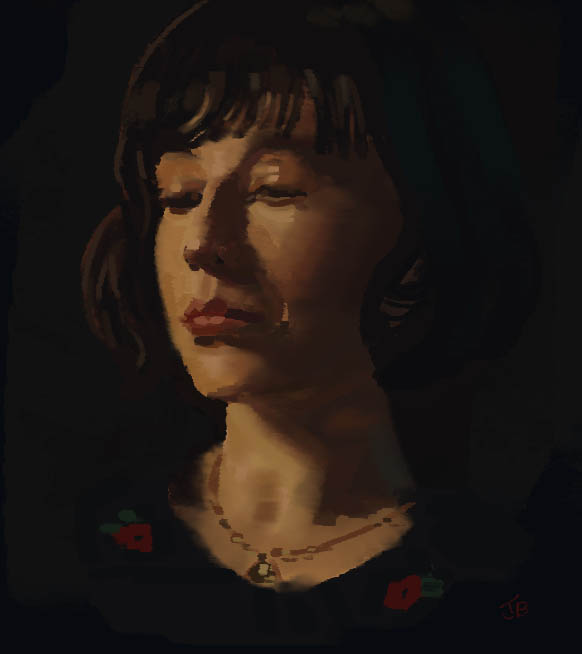
-
@eric-castleman My opinion is that sampling colors digitally is valuable. Especially if you are consciously doing so. I'm always amazed when (for example) a "pure blue " color is actually just a greyish brown, but appears blue because of the color(s) next to it. All this is color theory at its finest!
-
@eric-castleman I am going to go against what david said here. I never let my students sample the original artwork. The reason is you need to start to understand what "relative color" and "relative value" are. Relative color/Relative value is how a color or value is perceived vs. what it actually is. For example, using david's "pure blue" example, you may start by actually picking a blue because that is what it looks like. But then when you put it on your painting, you will see instantly that you are way too saturated compared to the original painting. Then you have to figure out how to desaturate that blue down and that is where all the learning comes in. If you just sample the original, the original painter has already done the work for you.
-
@jason-bowen very nice! BTW, I would always suggest posting the original along with your copy when posting master copies. That way we can see how close you came and offer advice.
-
@lee-white thanks. I didn't think of that I will next time.

-
@Eric-Castleman -- And here you get to see the difference in teaching styles. While @Lee-White is certainly not wrong in his zeal to challenge students right from the start, I feel that it's just as appropriate to work up toward mixing (or choosing) the colors by eye. To clarify what I wrote earlier I think that "consciously" digitally sampling colors can be a useful way to get a handle on color theory. Especially when starting out.
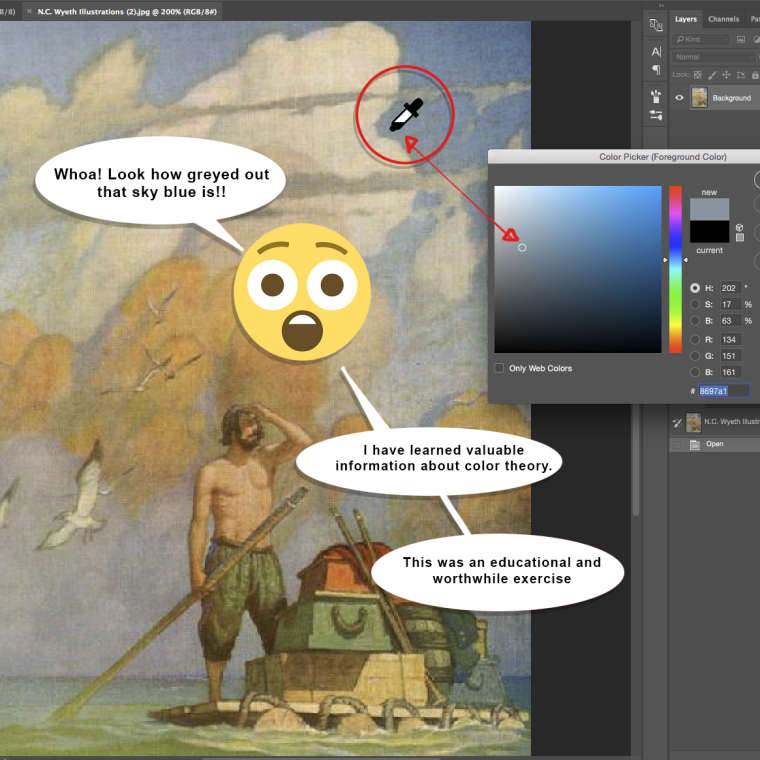
-
@davidhohn This is so helpful to see. I've been glancing back and forth between the original and your copy, noticing the similarities and differences. I'm drawn to the differences (e.g., the door sizes, the angle of the main house to the roof, the sharpness or textured edges of some of the washes of color, how there's blue on the right side of the sky in the original and not in your copy) and find myself deciding which effects I prefer. For example, I much prefer some of the textured edges that appear in your copy, but I miss that bit of blue in the sky in the original. I'll try to fit in some master copies this month in my schedule. As for sampling colors from the original versus figuring it out on your own, I think that if you're working digitally, why not save time and look at the sampled color? But still make sure you understand what's happening.
-
I have students try it on their own at first, then once the copy is finished, they go back and color sample the original image to see how close they got. I feel like this is more practical in a learning environment, but definitely try both methods out and see which works for you. If you absolutely can't hit a color in your master copy, then sample it and evaluate it like david says. Avoid mindless sampling though, that is a crutch that is cheating! : )
-
Also, I have proof that my method works better. Check out these master copies below.
This one is using my technique:
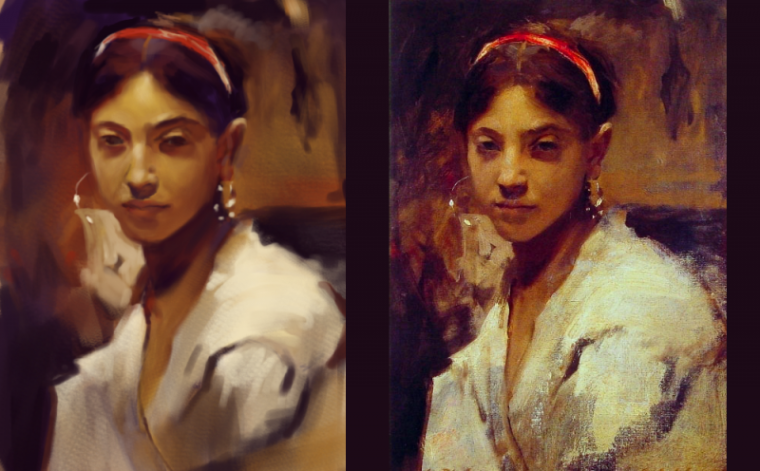
And this one is from one of David's students:
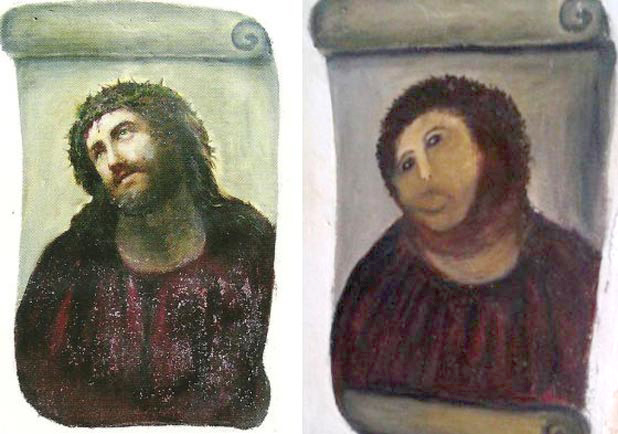
HAHA!!!! BURN!
-
@Lee-White First off, lol at your latest post! As for the master studies, I kinda had this plan to hold off on the style ones until a bit later. For the past 5 years or so I've been working on fundamentals when I could find the time, and just started making my own work last year. I wanted to see what flowed out naturally with at least 10 pieces or so and then buckle down more on style exploration. Between trying to make my own work and taking classes here and at schoolism, style exploration has been put on the back burner.
That being said, I'm always cautious with these types of studies. I can copy pretty well and my mind goes on autopilot. I have to go in with an agenda and make sure I am aware and present.
I went on a master study spree with studies like the following before I realized I wasn't learning anything:
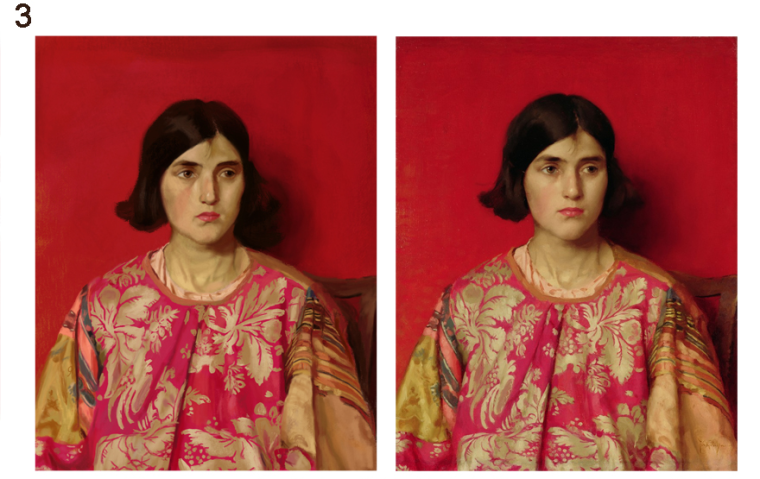
I learn a lot more if I apply the studies right away with stuff like this, kinda like what Eric was saying with applying other people's work to his own style:
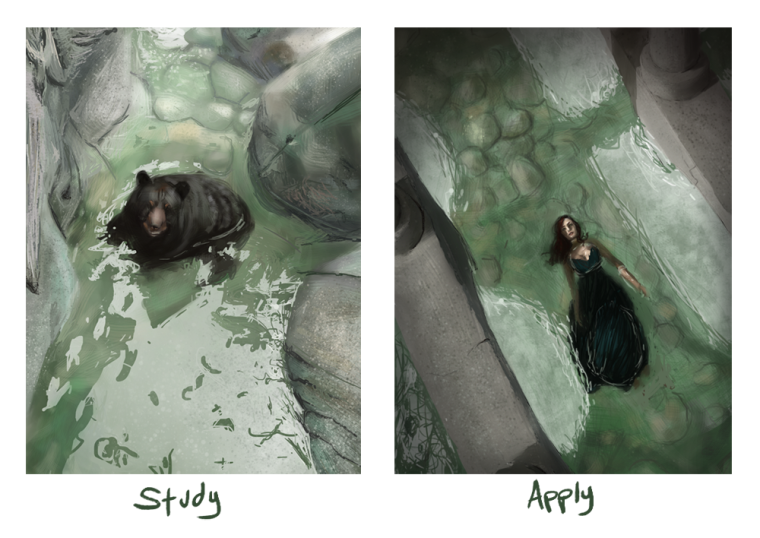
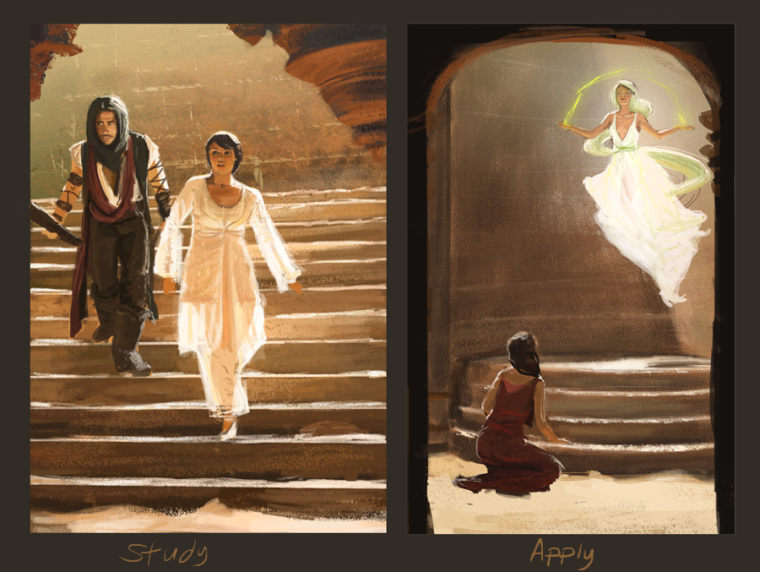
-
Shoot, I'm feeling like a pea walking amongst giants over here.
I thought I'd thank @davidhohn for posting his master copy and introducing me to another great artist, mister Kenard Pak, but before I reached the comment box I saw so many more interesting insights.
@TessaW are these studies made with you being conscious and aware of what you're doing and what you're learning like you said? Because it really looks like they paid off. Your applies look great. Not that I am fit to give critiques, I'm just judging with my eyes. -
@tianlian Always happy to share cool illustrators! @Lee-White and I were chatting about his work and we both think that the best stuff is on his tumblr http://pandagun.tumblr.com (rather than his website -- which is still great!)
Enjoy!
-
Awesome thanks for sharing!
-
@lee-white I would suggest that it also depends where on the learning process you are. When I first joined SVS and decided to get serious about learning color, I started digitally by tracing a photo, color sampling everything in the photo, and painting it. It was incredibly eye-opening to me to discover for example, that nothing in the "yellow boat" was actually yellow. I did that on a couple of photos, and then did a few photos trying to match by eye alone. My understanding of the way light and shadow affected stuff was accelerated immensely by those short exercises. I didn't do it for long because I agree that learning to see color without a color picker is really important and now that I'm trying to learn traditional watercolors and mixing my own colors, I have had to understand relative values and saturation much more but when I started out, I was such a neophyte with color that the color picker exercise was really helpful.